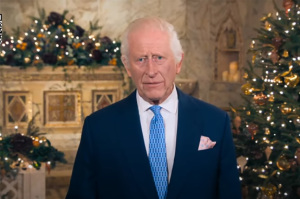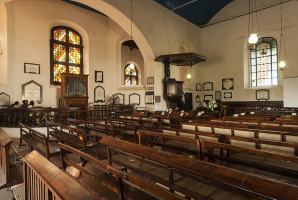US Catholic Priests Are Happy, Psychologist Says
A priest-psychologist who has advised American bishops on handling sex-abuse scandals presented his study at Catholic University in Washington this week, D.C., indicating that contrary to negative media projections, 90 percent of priests are happy.
Speaking at the Symposium on the Priesthood Wednesday, Monsignor Stephen Rossetti, author of Why Priests Are Happy: A Study of the Psychological and Spiritual Health of Priests, said his study found that priests have an exceptionally high degree of happiness.
The research is “consistent, replicated many times and now incontrovertible,” asserted Rossetti, clinical associate professor of pastoral studies and associate dean for seminary and ministerial programs at The Catholic University of America.
Rossetti, former president and CEO of St. Luke Institute in Maryland, a treatment facility for Catholic clergy, wrote the book after conducting a survey of 2,482 priests from 23 U.S. dioceses in 2009. He supplemented the study with a 2004 survey of 1,242 priests from 16 dioceses and other studies.
Rossetti identified a number of factors contributing to happiness in the priesthood such as a sense of inner peace, a positive view of celibacy, and a good relationship with God.
Priests are “no more and no less depressed than anyone else in the world,” “a little bit better than the laity” in studies that measure human intimacy and “quite a bit lower than the general population” in the degree that they are experiencing emotional burnout, The Catholic Review quoted Rossetti as saying.
Over 90 percent of priests said they receive the emotional support they need, 83 percent said they are able to share problems and feelings and only 22 percent said they are lonely. The vast majority of priests cited lay friends as one of their major supports, he said.
However, the psychologist was concerned about the increasing workload of the clergy. The 2004 survey found that 42 percent of priests said they “feel overwhelmed by the amount of work they have to do” – “and probably more than 50 percent today.”
“We need to do something about that,” Rossetti said. “We need to get together with the bishops and say, ‘Let’s talk about this.’”
Rossetti found that those who spend up to an hour in private prayer daily are “less emotionally exhausted, less depressed, less likely to be obese and less likely to be lonely.” His study also showed that younger priests are much more likely than those in the middle years of their priesthood to affirm the value of celibacy.
“Mandatory celibacy may be waning as a hot-button issue for priests,” Rossetti said, citing his study which showed 81 percent of priests ordained less than 10 years ago supporting celibacy as opposed to the support of only 38 percent of priests ordained between 30 and 40 years ago.
Rossetti said his findings challenge secularists who often equate religion with unhappiness and a denial of one’s humanity. The study demonstrates that true happiness is found in a lively faith that includes an awareness of God’s personal love, he concluded.





























